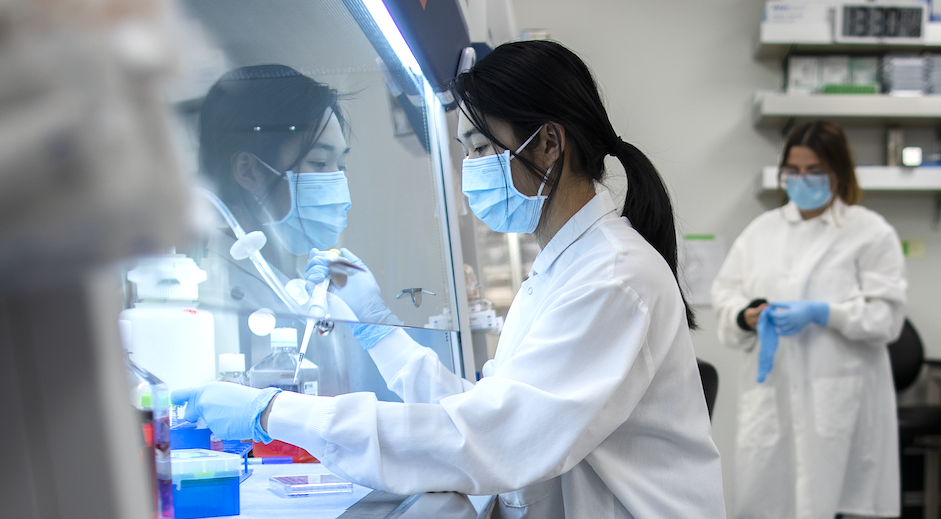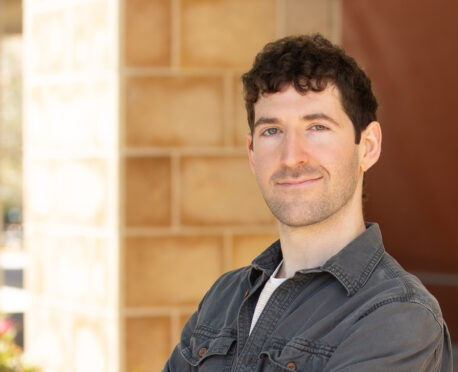LA JOLLA, CA—La Jolla Institute for Immunology (LJI) is pleased to announce that Nobel Laureate Bruce Beutler, M.D., has joined the Institute as a non-resident scholar. The newly established scholars program invites world-renowned scientists to spend time at the institute each year to exchange ideas, foster innovation and spark new discoveries through active collaborations. Nominated by the president, LJI Scholars serve for renewable two-year terms.
“We are thrilled to name someone with Bruce Beutler’s stature and unparalleled track record of innovation and discovery to the rank of LJI Scholar,” said Mitchell Kronenberg, Ph.D., president and chief scientific officer. “Adding the perspective and insight of one of the nation’s leading immunologists will undoubtedly enrich the institute’s intellectual environment and accelerate breakthroughs.”
Dr. Beutler currently holds the position Regental Professor and Director of the Center for Genetics of Host Defense at the University of Texas Southwestern Medical Center. He was awarded the Nobel Prize in Physiology or Medicine in 2011 for his groundbreaking work that provided novel insights into the activation and regulation of the innate immune system.
A pioneer in the study of innate immunity, Dr. Beutler isolated several key immune messenger molecules early in his career (TNFα, MIP1α, MIP1β, and others). He went on to discover the elusive sensing mechanism by which host cells recognize microbial invaders, including bacteria, protozoa, fungi, and viruses. Moreover, in work spanning nearly four decades, he identified proteins central to many other biological processes, notably neurobehavioral function, metabolism, and development. His discoveries have led to therapies for crippling and life-shortening diseases that affect millions of people.
Dr. Beutler received his undergraduate degree from the University of California at San Diego in 1976, and his M.D. degree from the University of Chicago in 1981. After two years of residency at the University of Texas Southwestern Medical Center, he became a postdoctoral fellow and then an Assistant Professor at the Rockefeller University (1983-1986). There, Dr. Beutler was the first to isolate mouse tumor necrosis factor (TNF). In 1986, Dr. Beutler returned to UT Southwestern as a Howard Hughes Medical Institute investigator where he invented and patented a recombinant inhibitor of TNF, now marketed as Enbrel (Etanercept). To this day it remains widely used in the treatment of rheumatoid arthritis and other inflammatory diseases. He transferred to The Scripps Research Institute in La Jolla, California, in 2000, where he served as a professor in the department of immunology and, beginning in 2007, as chairman of the department of genetics. In 2011 he announced his return to the Southwestern Medical Center to lead the Center for the Genetics of Host Defense (CGHD). Despite leaving San Diego, Dr. Beutler maintains close ties and has collaborated with a number of faculty members at LJI.
He holds the Raymond and Ellen Willie Distinguished Chair in Cancer Research in honor of Laverne and Raymond Willie, Sr. Before he received the Nobel Prize, his work was recognized by the Shaw Prize (2011), the Albany Medical Center Prize in Medicine and Biomedical Research (2009), election to the National Academy of Sciences and Institute of Medicine (2008), the Frederik B. Bang Award (2008), the Balzan Prize (2007), the Gran Prix Charles-Leopold-Mayer (2006), the William B. Coley Award (2005), the Robert-Koch-Prize (2004), and other honors. He is a member of multiple foreign academies of science, including EMBO, Leopoldina, and the Academy of Athens.



